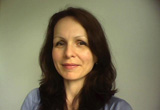 The basic surgical skills course (BSS) for Palestinian surgical trainees finished today. Throughout the two days of practical sessions it seemed that time acquired an extensile quality: the tasks completed in 48 hours on the Mount of Olives would usually fill a week. The intensity is not only due to the rigour of an arduous BSS course curriculum, but also fuelled by a human response which accompanies this transplanted course in the Middle East, and the forging of enduring friendships with our Palestinian counterparts.
The basic surgical skills course (BSS) for Palestinian surgical trainees finished today. Throughout the two days of practical sessions it seemed that time acquired an extensile quality: the tasks completed in 48 hours on the Mount of Olives would usually fill a week. The intensity is not only due to the rigour of an arduous BSS course curriculum, but also fuelled by a human response which accompanies this transplanted course in the Middle East, and the forging of enduring friendships with our Palestinian counterparts.
The course offered 20 young surgical trainees their first structured journey into professional life. The departure point on the first practical demo was the handling of surgical instruments. Index fingers and thumbs were poised, coerced, and gently directed to lever the dissecting scissors correctly.
Candidates were spellbound by the demo of that most essential of skills in this job: the tying of knots and suturing. Repetitive and essential, the demo carried on until a safe standard was achieved by all. The day gathered pace at the bowel anastomosis practical, with neatly placed single layer sutures which built confidence in young hands.
Then the old favourite—patching a hole in an artery (the vein patch). It proved to be the usual crowd-pleaser: due to the instant satisfaction of a tailored repair. Practising excision of a lesion (drawn on the goat leg the day before) and repairing a tendon (custom-cut yesterday on the aforementioned goat leg) increased the repertoire of essential techniques.
The implied drama and challenges of managing traumatic wound debridement made the young surgeons “treat” the turkey leg with utmost care. Tutors counted if all the pieces of gravel, beads, and glove segments (meanly hidden in the depths of the turkey leg yesterday) were retrieved in each “case” and whether all the turmeric (aka “infection”) was removed successfully in the washout.
The crowning glory remained the laparoscopic trainer session which was thoroughly enjoyed and praised. Many young surgeons have never handled a laparoscope before and have expressed a legitimate hope that laparoscopy (key-hole surgery) may also become routine in Palestinian hospitals, soon.
We all felt humbled by the Palestinian trainees’ positive attitude to learning and to life. Their avidity for acquiring knowledge and for professional exchange was apparent despite very difficult circumstances beyond their control and without the promise of imminent improvement.
This year we started a “train-the-trainer programme” in parallel to the BSS course. Five senior Palestinian surgeons were enlisted on the programme. They will progress to demonstrating various practical sessions in the BSS course next year. The long term view remains that eventually Palestinian surgeons will train their trainees themselves.
Yet again the course has been so welcomed here. It is needed to build, tune, and strengthen surgical skills for Palestinian surgeons. The course is reaching out, validating both professional contact and an exchange of experience.
It is an environment where there is no certainty that good things will be repeated, and yet it is full of hope for better. Departing from Augusta Victoria Hospital, it was an honour for the UK team to hear and to say: “Looking forward to see you in 2013 already.”
See also:
Magdalena Kincaid graduated from the University of Dundee and did her surgical training in Scotland.